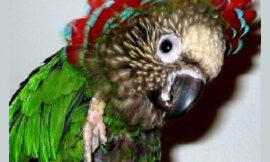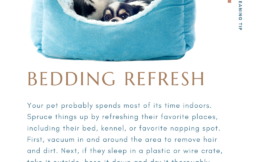
So you want a pet? You are not alone. According to the American Pet Products Association, 117.7 million U.S. households own a pet, and not just the warm and fluffy kind. Americans enjoy the company of snakes, reptiles, fish, turtles, tortoises, and crustaceans. Why would we not want the enjoyment of nurturing another living creature? This experience taps into the basic human need to care for others while providing us with a completely non-judgmental response. Further, research has demonstrated that pet ownership has a myriad of health benefits for people. Some studies suggest that it can lower stress, reduce depression, increase socialization, lower blood pressure, and even improve chances of recovery from heart attack. (Fitzgerald; Doheny)
Now, down to the obvious: pets do have their own needs. If you have decided to become a pet owner you must be brutally honest with yourself about what you can realistically provide. You may want a leaping, licking bundle of fur to greet you at the door when you come home from work, but how long are you going to leave the dog alone while at work? Just what is your veterinary budget? And how much time and patience do you have for maintaining a pet’s habitat?
Dogs
Dogs are a favorite. They make up about 39 percent of pet households. However, the amount of care required for a dog is sometimes a limiting factor, as is the potential veterinary costs. Dogs also require routine exercise, and many need a yard of some size. If you have no interest in providing the care required for a young child, do not get a dog. While dogs require less attention and may be left at home alone, unlike a 4 year old child, their demands are similar. If you can provide the attention, veterinary care, and living environment, by all means get a dog-they are second to none in their companionship and affection.
Cats
Cats come in second to dogs in popularity, making up about 32 percent of pet households. Cats require less attention than dogs and are a good choice for pet owners who can provide time and money, but do not have the ability or desire to put in the work required for a dog. Some considerations, though, include the required litterbox maintenance and veterinary care, which equals the cost of care for a dog. Although cats are more independent than dogs, they need attention too, and should be owned by those who are happy to play with a sweet furball.
Birds
Wilder than dogs or cats, most species of pet birds easily follow as the third most social and interactive of all pets. Aside from the smaller birds, such as finches, which are rather aloof, pet birds can easily become companions to their owners. They do require expensive enclosures and are as expensive as a purebred dog or cat to purchase. Once the habitat has been established, though, maintenance costs are standard. Birds do require veterinary care from an avian specialist. Keep in mind that birds are less domesticated than dogs and cats and therefore require consistent socialization to be handled. They need social interaction and if you do not want to be the primary provider of affection, you must get a second bird. Unlike dogs or cats, having a companion pet can be sufficient to satisfy a bird’s socialization needs, however this has the possibility of making them less accepting of human attention. Pick the type of bird you want carefully. These companions usually live human lifespans, so you want to make certain, as with any pet, you are picking the right type for you.
Medium-size Warm Fuzzies
This category includes rabbits, ferrets, guinea pigs, chinchillas, and rats (although some rats come in much smaller sizes). Medium-size animals are the social versions of the small animal group you find at pet stores, meaning that they will interact and appreciate affection on a limited scale; you are certainly not getting a more controllable or cheaper version of a dog or cat. Nevertheless, medium-size mammals are good for apartments due to their size and quiet and are a good second choice for those who don’t have the time, money, or space for a dog or cat. If you want one of these cuties, research! Owning a rabbit is very different from owning a chinchilla.
Small Animals
If you still want a warm fuzzy but have almost no time or money, you want a small animal. Your options include mice, gerbils, and hamsters. With some care and attention, you may be able to coax a small animal to eat from your hand, but otherwise these pets are happy to be left alone. As with the medium-size fluffies, make sure you do your research. Each type of animal has its own unique needs.
Snakes
No doubt, snakes are just plain cool. Be aware, though, that they require a lot of special care, which includes high cost, and they get big. Snakes require secure, often large, enclosures, small mammal feedings, and often have high veterinary bills since not all veterinarians are comfortable handling them. Snake ownership should never be taken on without careful consideration. If you are passionate about snakes, have the time to learn a library of reptile knowledge, and the money and space required to care for a snake, then start your research. Research, research, research. Snakes are fascinating pets requiring dedicated owners.
Other reptiles
Small reptiles do not care for interaction; they want to be watched. However, lizards and the like are interesting and certainly worthwhile pets. They vary in their lifespan, and while most do not live very long, some, like the iguana, will live for years. Pick your reptile carefully! Reptiles also tend to carry bacteria and their enclosures must be cleaned carefully and you must sanitize yourself after caring for your pet to avoid infections.
Fish
Fish, of all pets, probably care the least about you. They go along on their swimmy way and are interesting to watch. And while fish certainly do not demand daily attention from you, they can be costly and require a lot of maintenance in terms of their tanks. The amount of money and time required to keep fish depends on the type of fish you choose. The easiest fish to care for is the Betta, which is more than happy to live in a small, freshwater bowl with no filtering. Freshwater fish come in second on easiness and cost of maintenance, although they do require appropriate tank size, appropriate filtration, and proper choice of co-habitants (some will eat each other!). If you are truly up for a challenge, then salt water fish are an excellent choice, although it is best to wait until you have become experienced in fish ownership before taking on this responsibility.
Etc.
Turtles, tortoises, snails, crabs, and etc. This is a diverse group, some requiring much maintenance, some not. If you want one of these unique pets, you will find one meeting your maintenance and financial requirements. Be aware, though, that as with small animals, reptiles, and fish, the animals of the etc. group are happy with little to no interaction.
Pet ownership can improve your life, if you pick the pet appropriate to your lifestyle. The best way to decide which pet is right and how best to care for it is to research, research, research! Getting the wrong pet can be as dismaying as getting the right one is fulfilling. Know what you are getting with your future pet before you go to your local shelter, breeder, or aquarium store so you can happily choose the right companion(s).



